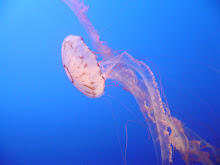In my opinion Helene Heggman did plagiarize. I would not consider it mixing because she took a whole page of an author’s actual work. If it were mixing, she would of taken the storyline but changed it excessively so that it would have been subtly recognized. That is what they do in music; they take a piece of the riff change it dramatically so it sounds completely new yet it subtly hints that it is a sample. She also did not mention that her book was a “mix” therefore it is considered plagiarism. Like in any other form of writing sources must be cited.
In Gardener’s post she cited “The guardian suggesting that “Hegemann simply does not understand what she has done—“To her, coming from the cut-and-paste world of blogs and Facebook, what she's done is no more than ‘mixing.’” I do not agree with The Guardian because people know when it is appropriate to use phrases without citation. One cannot compare writing quotes on Facebook to using a whole page in a novel. It does not justify Heggman’s actions. She should suffer the consequences for her imprudent actions. Heggman is also making revenue out of her novel, making her action un-ethical as well. Mixing is also not a legitimate reason for using other people’s work without citation. It should still be considered as plagiarism unless there was permission. Paralleling this back to music, musicians cannot take a song sample without permission even if it is being re-mixed. Many lawsuits have undergone due to these incidents, a recent one being the Black Eyed Peas for Boom Boom Pow. The same should be for “mixing” novels.
Although there are no legal repercussions for plagiarism I think there should be when money is involved. The reason because I think it is un-ethical for other people to make money off of someone’s creativity and originality. Heggman says “There’s no such thing as originality anyway, just authenticity.” I agree with her, but she was not being authentic either. An authentic person would have been inspired by previous works and tried to make something different. By “mixing” the whole page with minimal changes in my eyes is not being authentic. Especially since she tried to hide the fact that she did indeed use another author’s work. Although her motives are unclear (it could be that she wanted to make money or she truly does it for the joy of writing), to me she is not really portrayed as an authentic person in these articles. Although she did admit to using nom de plume Airen she still is justifying herself. An authentic person would have just said sorry I was not thinking etc.
This article reminds me of Gladwell’s article. The playwright stole words from his article in her play. It has some similarities but the big difference is that the playwright did create something completely new. She gathered information from academic journal to create a play. She used this information more as background, Heggman though created the same thing, a novel. As if it should be treated differently I am not quite sure, although they both did plagiarize (knowingly) it can be that playwright was more authentic than Heggman.
Charity Pierce, My 600-Lb. Life Star, Dead at 50
2 hours ago

Well, there ARE legal repercussions for plagiarism when it is also a copyright violation...it's a bit confusing, though, I know, because some plagiarism = copyright violation, but not all, and not all copyright violations = plagiarism.
ReplyDeleteThe way you've addressed the issue of "authenticity" in this post is really interesting, by the way! Good post.